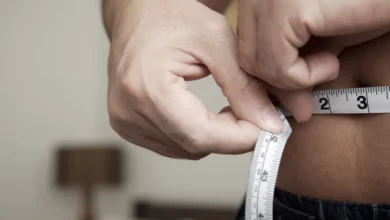For those of you who want to lead a healthy lifestyle and lose weight but cringe at the thought of ditching the mouth-watering chocolate bars and the calorie-packed take-out food, be assured, you can get used to anything, including super healthy sugar-free and fat-free foods if you do it long enough. The proof? My own experience with Alicia Rutherford’s "urban cleanse."
Rutherford, a young British-American woman, credits herself for bringing the concept of this special five-day detox plan to Cairo, and she spoke to Al-Masry Al-Youm about the cleanse here. Rutherford is a certified natural chef, accredited by Bauman College in San Francisco where she studied healing foods for modern health.
The detox itself is a combination of natural freshly squeezed vegetable and fruit medleys in addition to nourishing vegetable soups. The star of the urban diet is what Alicia calls the "Green Healing Juice" which consists of celery, cucumber, apple, cabbage, lettuce, lemon and ginger plus other greens. This juice smells strongly of, well, vegetables, and to put it in plain and simple words: it really tastes bad, as does the aftertaste–but you get used to it and it’s nothing that a good brush of the teeth (and tongue) and half a small bottle of water won’t get rid of. You actually crave it after the diet is done. Or perhaps it’s your body that craves that vitamins and nutrients that come with the green stuff. The end result is, even this becomes nice and desirable.
But the green juice is not the only part of the diet, there are low-calorie strawberry shakes and chocolate smoothies for snacking and "energy soups" that are quite nourishing and filling. There are no solid foods allowed in this diet, only green tea, freshly squeezed fruit juices and the occasional tablespoon of honey (for an energy kick) are permissible.
Ideally, the cleanse is for people who lead hectic lifestyles, made worse by coffee and cigarette addictions, in addition to eating junk food and stressing and fretting about life and office politics excessively. Ideally, the detox should help cleanse the liver, blood and digestive tracts and boost the immune system. As this happens, the detox dieters are asked to contribute by staying away from stressful environments or at least water down their effects through relaxation outside of the city, going on holiday by the sea or into the desert or even a lazy weekend. It helps with the detox if you brush your skin to increase circulation flow in the mornings, get a good night’s sleep, sweat the toxins out in a sauna or jacuzzi and stay as far away as possible from TVs and cell phones.
The first two days were the hardest. I felt exhausted, drained and perhaps even irritable and impatient. According to Rutherford, people whose bodies are not used to detoxing may experience flu-like symptoms and side-effects that include aches, pains, bad breath, acne, weakness and skin rashes. I experienced none of that; it was the headache and water retention that spoiled it for me in the first days. However, the headache–which can be caused by the caffeine withdrawal–slowly disappeared and my body slowly got rid of the extra water a day or two after the diet. I also lost a few pounds and I’m no longer dependent on coffee or black tea for survival.
More than a week after I finished the detox, my body still feels lighter, and my skin is glowing. Breaking this semi-fast, however, I made a few mistakes. For instance, I went to solid foods right away, including eating bread and meat the very next day and my stomach suffered for it. In the small packet that accompanies the diet, Ruthurford warns, "Once you awaken your digestive system again it will want food and your body will want to gorge on whatever it sees." However, she advises that it is best to break the fast with high water content foods like fruit and salads.
Perhaps the only real drawback of this diet is how much its costs; it’s LE850 for five days of juice and soup supply but this includes delivery right to your door. Rutherford is also available for advice and questions on her cell phone all through the diet.
It does take discipline to complete, but if you soldier on, it only gets better. In short, it’s worth it and if you live in Cairo, chances are you need it and if you can afford it you should do it at least once a year.




